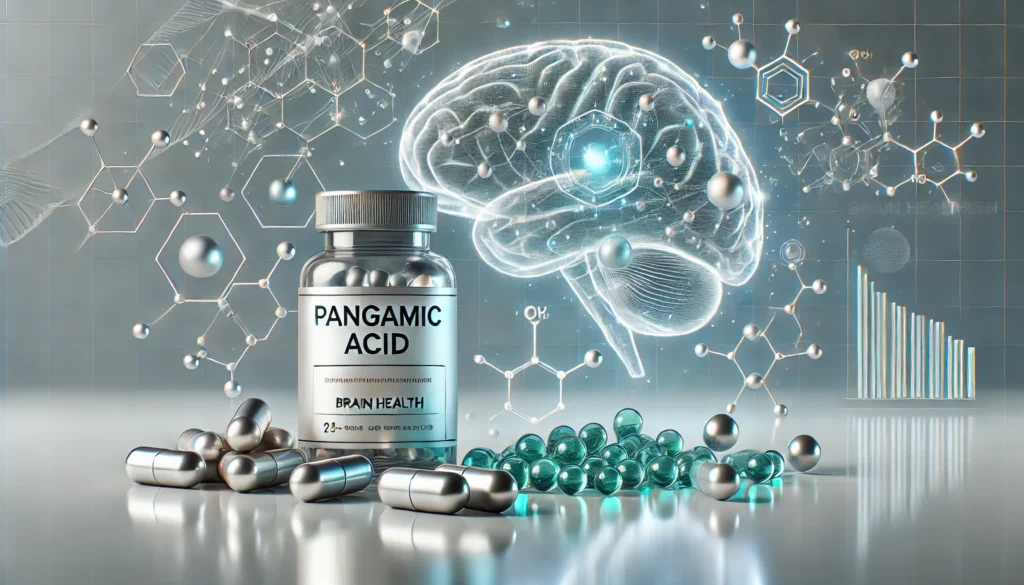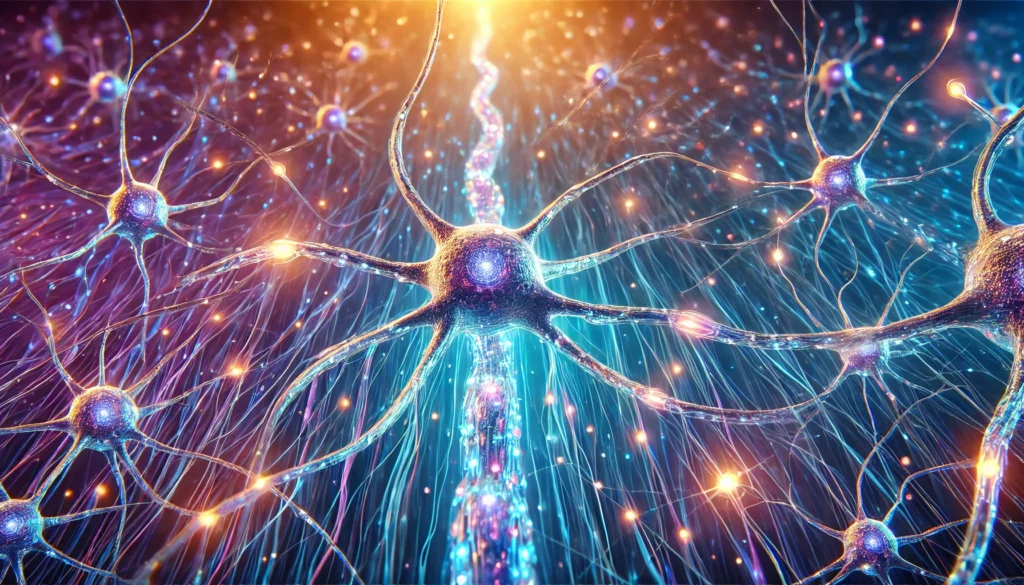Pangamic acid, also referred to as vitamin B15 in some early texts, is a chemical compound that has generated interest for its purported benefits to health, particularly in the realms of athletic performance, detoxification, and brain function. While there is some debate over its classification and efficacy, it continues to be explored for its potential nootropic effects, meaning its ability to enhance cognitive function, improve memory, and protect the brain from oxidative damage.
This article will delve into pangamic acid’s potential nootropic benefits, recommended dosages, possible side effects, interactions with other medications and supplements, and the science behind its action on the body and brain. By drawing on available evidence, we aim to present a balanced and scientifically responsible analysis of pangamic acid, shedding light on its viability as a nootropic supplement.
You May Also Like:
Pangamic Acid: Potential Nootropic Benefits, Dosage, Side Effects, Interactions and Other Important Information About This Supplement is an original (NootropicsPlanet) article.
Sources of Pangamic Acid
Pangamic acid was originally derived from apricot kernels, and this association has tied it to a controversial history, given that apricot kernels also contain amygdalin, a compound that breaks down into cyanide. However, modern formulations of pangamic acid are typically synthesized and not extracted from natural sources. While there are claims that pangamic acid can be found in grains, seeds, and certain animal tissues like liver and kidneys, its bioavailability and stability in food have been called into question.
As a synthesized supplement, pangamic acid is typically available in tablet or capsule form, often combined with other compounds such as dimethylglycine (DMG) or calcium pangamate. Pangamate salts are sometimes used to increase the stability and efficacy of the compound.

Chemistry of Pangamic Acid
The chemical structure of pangamic acid is a topic of some ambiguity in scientific literature. It is often described as a derivative of gluconic acid, combined with dimethylglycine (DMG). DMG is an intermediary metabolite in the metabolism of choline and methionine, and it plays a role in methylation processes in the body, which are crucial for DNA repair, detoxification, and neurotransmitter synthesis.
Chemically, pangamic acid appears to act as an antioxidant and methyl donor, meaning it can transfer methyl groups (CH3) to other molecules, facilitating numerous biochemical reactions. This action is believed to underlie its purported detoxification effects and its potential role in reducing oxidative stress, particularly in the brain.
Physiological Mechanisms of Pangamic Acid in the Body and Brain
The exact mechanism by which pangamic acid exerts its effects in the body is still not fully understood. However, its role as a methyl donor suggests that it could be involved in several key physiological processes that support cognitive health and overall brain function.
- Antioxidant Activity: Like many nootropic supplements, pangamic acid is thought to combat oxidative stress by neutralizing free radicals. This is particularly important in the brain, where oxidative damage can impair neuronal function and contribute to cognitive decline over time. By mitigating the effects of free radicals, pangamic acid may help protect neurons from damage associated with aging and neurodegenerative diseases such as Alzheimer’s and Parkinson’s.
- Detoxification: Pangamic acid has been linked to detoxifying effects, particularly in the liver. This is critical as the liver plays a key role in removing toxins from the bloodstream that could otherwise cause harm to the brain. By promoting liver function and enhancing the body’s natural detox pathways, pangamic acid may indirectly support cognitive health by reducing the load of toxins that could impair brain function.
- Mitochondrial Function and Energy Metabolism: Another hypothesized mechanism of action for pangamic acid is its involvement in mitochondrial function. Mitochondria are the powerhouse of the cell, producing the adenosine triphosphate (ATP) necessary for all cellular functions. Pangamic acid may support mitochondrial efficiency, thereby ensuring that brain cells have the energy required for optimal cognitive performance. This could translate into improved memory, focus, and mental clarity.
- Methylation and Neurotransmitter Synthesis: As a methyl donor, pangamic acid is believed to support the production of critical neurotransmitters like dopamine, serotonin, and norepinephrine, which are essential for regulating mood, memory, and cognitive function. Efficient methylation is also crucial for the synthesis of phosphatidylcholine, a key component of brain cell membranes that is involved in maintaining neuron structure and function.

Nootropic Benefits of Pangamic Acid
Despite its relatively obscure status in modern supplementation, pangamic acid has been suggested to offer a range of nootropic benefits, particularly in the areas of cognitive performance and brain health. While much of the available evidence is anecdotal, the following cognitive benefits have been proposed based on its biochemical properties:
- Enhanced Cognitive Clarity and Focus: Pangamic acid’s role in mitochondrial energy production may help alleviate mental fatigue and improve focus, particularly in individuals facing cognitive strain or mental burnout. By ensuring that brain cells have adequate energy to function, pangamic acid could theoretically improve attention and mental clarity.
- Neuroprotective Effects: The antioxidant properties of pangamic acid may offer neuroprotective benefits by shielding the brain from oxidative stress, which has been linked to neurodegenerative diseases. In particular, individuals at risk of cognitive decline due to aging or high oxidative stress levels could potentially benefit from supplementation.
- Mood and Cognitive Resilience: Through its support of methylation processes, pangamic acid may help maintain balanced levels of neurotransmitters, particularly serotonin and dopamine. These neurotransmitters are key to mood regulation, and by supporting their synthesis, pangamic acid could potentially enhance emotional well-being and cognitive resilience in the face of stress.
- Improved Memory: By supporting overall brain metabolism and neurotransmitter synthesis, pangamic acid may play a role in enhancing short- and long-term memory. While clinical studies are lacking in this area, the theoretical framework for improved brain energy metabolism and neuronal protection suggests potential benefits for memory retention and recall.

Dosage and Supplementation Guidelines
The appropriate dosage of pangamic acid remains somewhat controversial due to limited scientific research and regulatory scrutiny. In many countries, pangamic acid is not officially recognized as a vitamin or supplement, and recommended dosages are not standardized.
- General Dosage Recommendations: When used as a supplement, typical dosages range from 50 mg to 300 mg per day. However, there is no universally accepted dosage, and the appropriate amount may depend on individual health needs, age, and specific health goals.
- Nootropic Use: For individuals looking to use pangamic acid as a nootropic supplement, starting with a lower dose, such as 50 mg per day, may be advisable, gradually increasing to a maximum of 300 mg per day depending on tolerance and observed effects.
- Supplement Forms: Pangamic acid is most often available in tablet or capsule form, sometimes combined with other nootropic agents like DMG or antioxidants like vitamin C. This combination may enhance the overall efficacy of pangamic acid by supporting its antioxidant and methylation activities.
Side Effects and Safety
While pangamic acid is generally well-tolerated at low to moderate doses, there is limited data on its long-term safety, particularly at higher dosages. Some potential side effects and risks include:
- Gastrointestinal Distress: Some users have reported mild gastrointestinal discomfort, including nausea and bloating, particularly when taking high doses of pangamic acid. To reduce the risk of digestive upset, it may be best to take pangamic acid with food.
- Potential Toxicity: Since early formulations of pangamic acid were derived from apricot kernels, concerns have been raised about contamination with amygdalin, which can convert to cyanide in the body. However, modern synthetic forms of pangamic acid are free from this risk, provided they are manufactured by reputable companies.

Interactions with Other Supplements and Medications
Pangamic acid may interact with certain medications and supplements, particularly those that affect the liver or involve methylation processes.
- Interactions with Nootropic Supplements: Pangamic acid may be safely combined with other nootropics, such as L-theanine or caffeine, but caution is advised when combining it with compounds that have strong antioxidant or detoxifying properties. Overloading the body’s antioxidant systems could lead to imbalances in free radical regulation, potentially reducing the effectiveness of either supplement.
- Medications Affecting the Liver: Given pangamic acid’s proposed detoxifying effects on the liver, individuals taking medications that affect liver enzymes (such as statins or antiepileptic drugs) should use caution, as pangamic acid could theoretically alter the metabolism of these drugs.
- Blood Pressure Medications: As pangamic acid may improve circulation and oxygenation, individuals on blood pressure-lowering medications should be cautious, as it could potentially amplify the effects of these drugs, leading to hypotension.
Risks for Individuals with Certain Health Conditions
While pangamic acid appears to be safe for most people when used in moderate amounts, certain populations should exercise caution:
- Pregnant or Nursing Women: There is insufficient data on the safety of pangamic acid for pregnant or breastfeeding women, and its use is generally not recommended in these populations due to the lack of established safety guidelines.
- Individuals with Kidney or Liver Disease: Those with compromised kidney or liver function should consult a healthcare provider before using pangamic acid, as its effects on detoxification pathways could place additional strain on these organs.
Conclusion: Is Pangamic Acid a Viable Nootropic?
While pangamic acid holds promise as a nootropic supplement, particularly for its potential antioxidant and energy-boosting effects, more rigorous clinical research is needed to confirm its efficacy and safety. For individuals seeking cognitive enhancement, pangamic acid may offer some benefits in terms of mental clarity, focus, and neuroprotection. However, it is not yet widely recognized as a mainstream nootropic, and its long-term effects remain unclear.
For those considering pangamic acid supplementation, it is crucial to consult with a healthcare professional, particularly if you have pre-existing health conditions or are taking other medications. As with any supplement, quality and purity should be top priorities when selecting a product, and starting with a low dose is advised to assess tolerance and potential benefits.

References:
- Pangamic Acid – Uses, Side Effects, and More. Retrieved from: https://www.webmd.com/vitamins/ai/ingredientmono-490/pangamic-acid
- What Is Vitamin B15 Good For? Pangamic Acid. Retrieved from: https://www.medicinenet.com/what_is_vitamin_b15_good_for/article.htm
- Oxidative Stress in Alzheimer’s and Parkinson’s Diseases: Insights from the Yeast Saccharomyces cerevisiae. Retrieved from: https://pmc.ncbi.nlm.nih.gov/articles/PMC3371773/
- Unique and interactive effect of anxiety and depressive symptoms on cognitive and brain function in young and older adults. Retrieved from: https://pmc.ncbi.nlm.nih.gov/articles/PMC4222514/
Important Note: The information contained in this article is for general informational purposes only, and should not be construed as health or medical advice, nor is it intended to diagnose, prevent, treat, or cure any disease or health condition. Before embarking on any diet, fitness regimen, or program of nutritional supplementation, it is advisable to consult your healthcare professional in order to determine its safety and probable efficacy in terms of your individual state of health.
Regarding Nutritional Supplements Or Other Non-Prescription Health Products: If any nutritional supplements or other non-prescription health products are mentioned in the foregoing article, any claims or statements made about them have not been evaluated by the U.S. Food and Drug Administration, and such nutritional supplements or other health products are not intended to diagnose, treat, cure, or prevent any disease.


